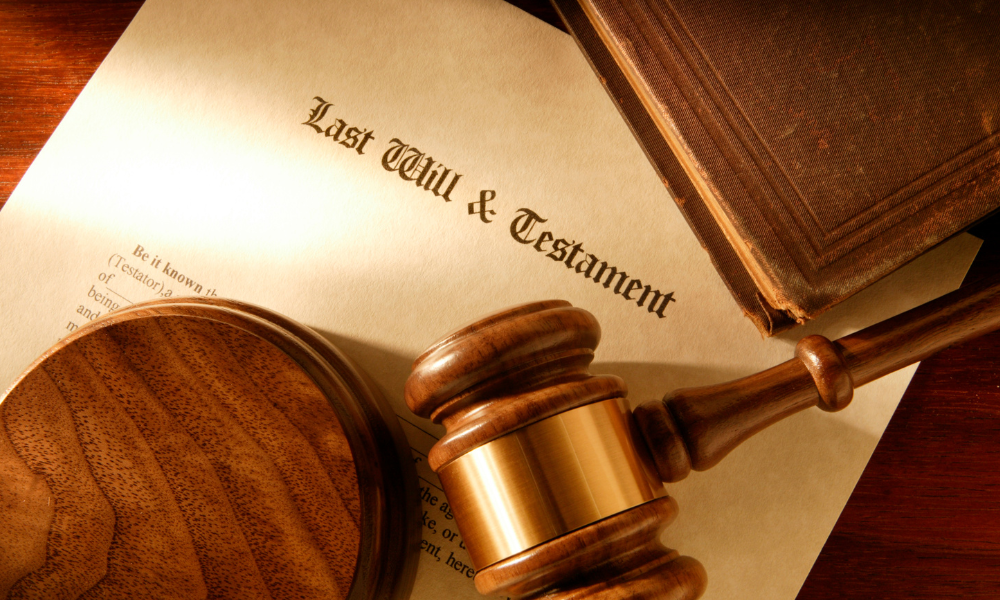Filing for bankruptcy can help you get out from under crushing debt, but it also comes with many questions. One big area of concern is how bankruptcy affects joint debts. When you share debts with someone else, these debts are treated differently in a bankruptcy case. Understanding these differences is key to making the right decisions.
Joint debts are any financial obligations you share with another person. This could be a spouse, friend, or family member. When you file for bankruptcy, both your and your co-debtor’s responsibilities can be impacted. The effects depend on whether you file for Chapter 7 or Chapter 13 bankruptcy. Each type of bankruptcy handles joint debts in its way.
Navigating the bankruptcy process can be complicated. Knowing how your joint debts will be handled helps you and your co-debtor avoid surprises. It’s important to understand your options and take steps to protect everyone’s financial interests. This guide will help you grasp the basics, so you can move forward with confidence.
Understanding Joint Debts in Bankruptcy
Joint debts are financial obligations shared by two or more people. Common examples include mortgages, car loans, and credit card debts. When one person files for bankruptcy, both individuals in a joint debt arrangement feel the impact. How these debts are handled depends on the type of bankruptcy you file and specific regulations in Las Vegas.
In a bankruptcy case, the filer aims to discharge as many of their debts as possible. But with joint debts, the other co-debtor remains responsible for the full obligation. This means that even if the bankruptcy relieves you of your responsibility, the creditors can still pursue the co-debtor for repayment.
Understanding how bankruptcy processes impact joint debts is crucial for anyone sharing financial obligations. Knowing what to expect can save both you and your co-debtor from unpleasant surprises. It’s essential to communicate with your co-debtor and make informed decisions to protect everyone’s financial wellbeing.
How Chapter 7 Bankruptcy Affects Joint Debts
Chapter 7 bankruptcy, often called “liquidation bankruptcy,” involves selling your non-exempt assets to pay off creditors. This process can significantly impact any joint debts you share with someone else. Here’s what you need to know:
1. Discharge of Your Debt: When you file for Chapter 7, your obligation to pay the joint debt will be discharged. This means you are no longer legally required to pay the money you owe on the debt.
2. Co-Debtor’s Responsibility: Even though your responsibility is discharged, your co-debtor is still liable for the full amount of the debt. Creditors can continue to pursue them for payment, which can strain their finances and relationship with you.
3. Protection for Co-Debtor: Unfortunately, Chapter 7 offers very little protection for your co-debtor. They will continue to face collection efforts and potential lawsuits from creditors, despite your discharge.
4. Impact on Credit Score: While your credit score will suffer due to the bankruptcy filing, your co-debtor’s credit score can also be impacted if they fail to keep up with payments. Their financial obligations remain unchanged, and their credit report will show missed payments or defaults if they cannot pay.
Making an informed decision about filing for Chapter 7 bankruptcy requires understanding these consequences. Discussing your options with a legal professional ensures that you and your co-debtor are prepared for the potential fallout.
How Chapter 13 Bankruptcy Impacts Joint Debts
Chapter 13 bankruptcy, often called a “wage earner’s plan,” allows you to keep your assets while reorganizing your debts into a repayment plan. This type of bankruptcy offers different protections for joint debts compared to Chapter 7.
1. Repayment Plan: Under Chapter 13, you create a 3 to 5-year repayment plan to pay off your debts. Joint debts get included in this plan. You make regular payments to a bankruptcy trustee who then pays your creditors.
2. Co-Debtor Stay: One significant benefit of Chapter 13 is the “co-debtor stay.” This means creditors cannot pursue your co-debtor for repayment while you are making your payments under the plan. It temporarily protects your co-debtor from collection actions.
3. Discharge After Completion: If you successfully complete your repayment plan, your liability for the joint debts included in the plan is discharged. Your co-debtor might still be responsible for any remaining balance, but much of the debt may have been paid off during the plan.
4. Maintain Relationships: By keeping up with your repayment plan, you help protect your co-debtor from financial strain. This can help maintain personal relationships, as your co-debtor won’t face aggressive collection efforts.
Chapter 13 offers a way to handle joint debts that protect both parties more effectively than Chapter 7. Completing a repayment plan successfully provides significant relief to both you and your co-debtor.
Steps to Protect Co-Debtors During Bankruptcy
It’s crucial to take steps to protect your co-debtor when filing for bankruptcy. Here are several actions to consider:
1. Open Communication: Talk with your co-debtor about your plans to file for bankruptcy. Explain how it will impact them and what steps you’re taking to protect their interests.
2. Consider Filing Together: If your co-debtor is your spouse, filing for bankruptcy together can simplify the process. It ensures that both parties are protected and debt is discharged for both.
3. Explore Chapter 13 Options: As mentioned, Chapter 13 can offer more protection for co-debtors than Chapter 7. Discuss this option with your legal advisors to see if it’s the right choice for your situation.
4. Seek Legal Advice: Consulting with a bankruptcy attorney in Las Vegas helps you understand your options and the best steps to take. They can guide you through the process and offer strategies to protect your co-debtor.
5. Monitor Credit Reports: Regularly check your co-debtor’s credit reports to ensure that the bankruptcy and repayment plan do not negatively impact their credit score. Address any issues immediately with creditors and your trustee.
6. Stay Informed: Make sure both you and your co-debtor know your rights and responsibilities during and after the bankruptcy process. Keep up with your payment plans and legal obligations.
By taking these steps, you can help protect your co-debtor from financial harm and preserve your relationship during the bankruptcy process.
Conclusion
Navigating bankruptcy can be complicated, especially when joint debts are involved. Understanding how your choice between Chapter 7 and Chapter 13 bankruptcy impacts your joint debts is crucial. Each type of bankruptcy treats joint debts differently, affecting both you and your co-debtor in unique ways.
Open communication, careful planning, and legal advice are essential steps to protect your co-debtor during bankruptcy. By exploring options like Chapter 13, considering joint filings, and staying informed about your rights and obligations, you can minimize the negative impact on both parties.
For anyone needing help with bankruptcies, seeking expert guidance can make a significant difference. Half Price Lawyers in Las Vegas are here to help you navigate your bankruptcy and protect your financial future. Contact us today to discuss your options and take the first step toward financial relief.





